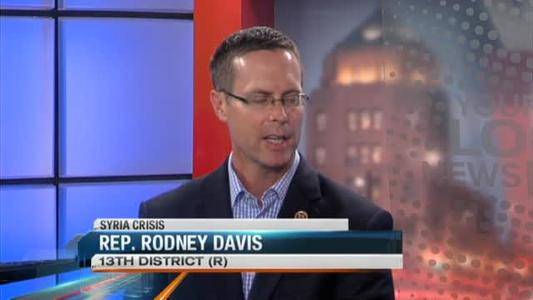
“The general population doesn’t know what’s happening, and it doesn’t even know that it doesn’t know.” — Noam Chomsky
We’re often reminded that children repeat what they hear: Congressmen too, apparently. Two months earlier, President Obama had said on Jay Leno’s program that the Russians often “slip back into cold war thinking.”
But it’s in fact Barack Obama and his administration who’ve “brought the Cold War mentality back” — by subverting an elected government in Ukraine with the help even of neo-Nazis — and producing a proxy war against Russia that has killed thousands.
Practically the entire United States government — both the Obama administration and the Congress — are urging the illegal junta in Kiev, Ukraine, to continue to attack the provinces of Donetsk and Luhansk (together called Donbas), the eastern part of the country, where people don’t want to be ruled by the Kiev regime. More than 6,000 people have already been killed in Donbas, and the Obama administration is planning to send more troops and weapons to continue the slaughter.
The country of Ukraine, a rich agricultural, mining and industrial region in eastern Europe, was part of the Soviet Union until the USSR broke up in 1991. Since then, the US has been trying to reduce Russia and the other countries that made up the USSR to the economic status of third-world countries — mainly suppliers of raw materials for a US-led world economy. The result was a depression in Russia in the 1990s worse than the Great Depression of the 1930s; even the life expectancies of Russians sank.
When Vladimir Putin became president of Russia in 1999, he reversed that precipitate decline. That’s why he’s the world’s most popular leader of a major country — and why he’s demonized in the West — not because he’s invading Ukraine: he isn’t, although all we hear in the media is “Russian aggression.”
But why is President Obama adding yet another war to the mass murder he has committed or supported — illegally — in Afghanistan, Iraq, Syria, Libya, Pakistan, Somalia, Yemen, and even the Philippines? It’s a proxy war, meant to injure seriously the Russian economy and perhaps even force regime change, so that Russia cannot contribute to an organized Eurasian economy — in concert with China — that will reduce the world-wide economic control of the rich American 1%.
The leading Democratic party strategist, Zbigniew Brzezinski (adviser to presidents from Carter to Obama), wrote almost 20 years ago:
“It is imperative that no Eurasian challenger emerges capable of dominating Eurasia and thus of also challenging America… How America ‘manages’ Eurasia is critical… About 75 per cent of the world’s people live in Eurasia, and most of the world’s physical wealth is there as well, both in its enterprises and underneath its soil. Eurasia accounts for about three-fourths of the world’s known energy resources… America is now the only global superpower, and Eurasia is the globe’s central arena. Hence, what happens to the distribution of power on the Eurasian continent will be of decisive importance to America’s global primacy and to America’s historical legacy.”
In this indirect attack via Ukraine that risks war with nuclear-armed Russia, the Obama administration is working for that 1%, not the majority of Americans, as Brzezinski readily admits. He writes that, if America is to control Eurasia and dominate the world, it cannot sustain a popular democracy, because “the pursuit of power is not a goal that commands popular passion… Democracy is inimical to imperial mobilization.”
But “imperial mobilization” — military control in Europe and Asia — is the vision that drives Obama and company, and therefore they try to mislead the US populace on what they’re doing — and why. Most Americans don’t know that US “special forces” — death squads, like American Sniper — are active in three-quarters of the countries of the world. Their activities include kidnapping (“rendition”), torture, and murder — all under the excuse of “fighting terrorism,” but in fact they’re part of Brzezinski’s “imperial mobilization.” Americans don’t know, but the rest of the world does — and we’re hated for it.
As the killing continues in Donbas, the attitude of both the media and the academy seems to be what my TV colleague (AWARE on the Air, Urbana Public TV, Tuesdays at 10 p.m.) Ron Szoke calls, “Donetsk, Don’t Tell!” At a party in Brooklyn a month after Davis’ talk, I was talking to a former human rights lawyer who now writes for a liberal website on human rights in Russia. “Including support for human rights in Crimea?” I asked.
“No, I mean how the suppression of human rights in Russia aids Putin’s dictatorship.”
“Is it a dictatorship when he’s the most popular leader in Europe, and his popularity in Russia went up when he opposed the US-backed coup in Ukraine?”
“He wants to increase his popular support by stirring up nationalism. That is likely one of the reasons why he invaded Ukraine, which also distracted Russians from their poor economy.”
“But he didn’t invade Ukraine,” I protested, in vain. “The Kiev government” — the only post-WWII government in Europe to include explicit fascists — “attacked Donetsk and Luhansk…”
On Valentine’s Day weekend, a well-attended panel discussion at the U of I’s International and Area Studies Library produced six well-schooled academics to discuss the situation in Ukraine. In two hours of presentations, Russia was very much on the agenda, but the policy and actions of the US government were not mentioned.
C. G. Estabrook (Ph.D. in history, Harvard) is a retired visiting professor at U of I; he conducts a political discussion program, “News from Neptune,” on Urbana Public TV (and YouTube).








